Universitas Gadjah Mada actively engages in projects aimed at recording and preserving Indonesia’s intangible cultural heritage, encompassing local folklore, traditions, languages, and indigenous knowledge. These initiatives often involve collaboration with local communities, government agencies, and international organisations to ensure the safeguarding of cultural practices, including those of displaced communities.
To highlight the diverse scales and contexts in which cultural practices, traditions, and knowledge systems are preserved and recognised, the projects or activities can be categorised into:
Local or Regional Cultural Heritage
In November 2023, UGM’s Faculty of Cultural Sciences presented the results of a study identifying ten cultural objects in Sleman Regency (the district of Minggir, Tempel, Pakem, and Turi) with the potential to be designated as Intangible Cultural Heritage by the Ministry of Education and Culture. In this project, UGM collaborates with local cultural offices, such as the Sleman Regency Cultural Office (Kundha Kabudayan).
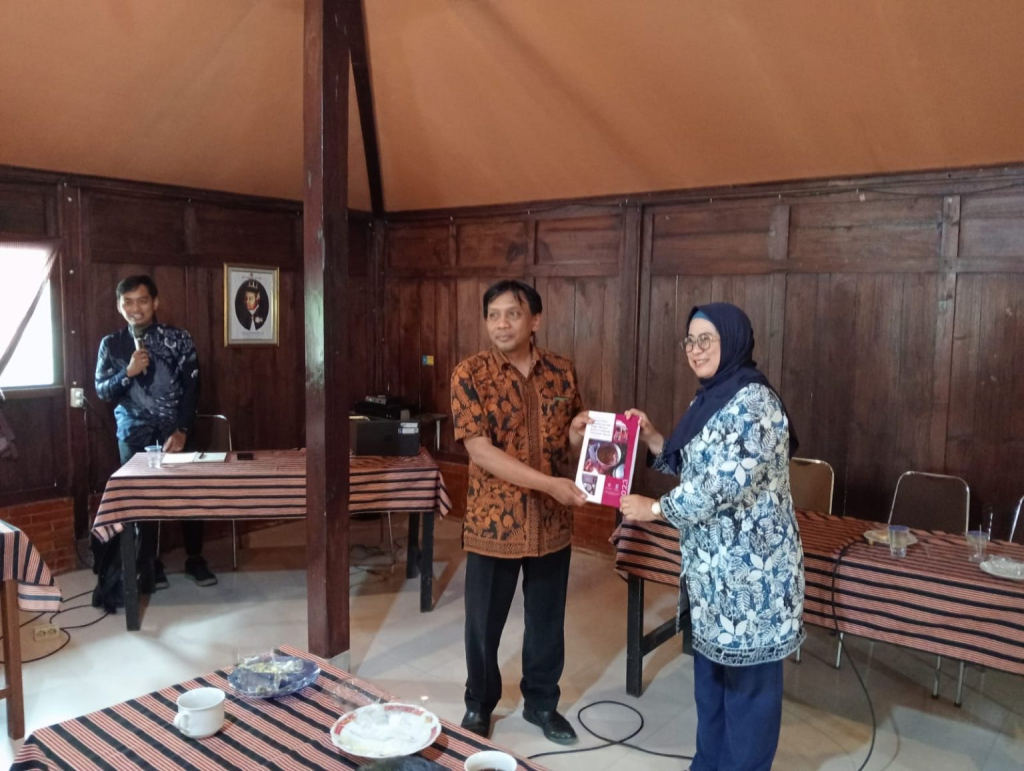
UGM Visual Arts Unit initiated the Jejamuan Art Project to revitalise the traditional Indonesian herbal drink, Jamu. Indonesia is renowned for its traditional food and beverages, one of which is Jamu, which is recognised by UNESCO as an intangible cultural heritage. Unfortunately, public awareness remains limited regarding the fact that the Jamu culture can be developed beyond its role as merely a healthy drink tradition (RRI Pusat Pemberitaan – Jejamuan Art Project). This project combines art and cultural heritage to promote and preserve Jamu culture among younger generations. A total of 20 young artists visited Kampung Jamu Gesikan in Merdikorejo, Tempel, in Sleman district, to collectively learn about the cultural heritage of Jamu. This activity, presented as Sambang Jejamuan, is part of the Jejamuan Art Project (JAP), a series of events focused on creating and exhibiting artworks themed around the Jamu culture (. The exhibition features around 23 pieces of art at The Ratan Art Space, Panggungharjo, in Bantul district.
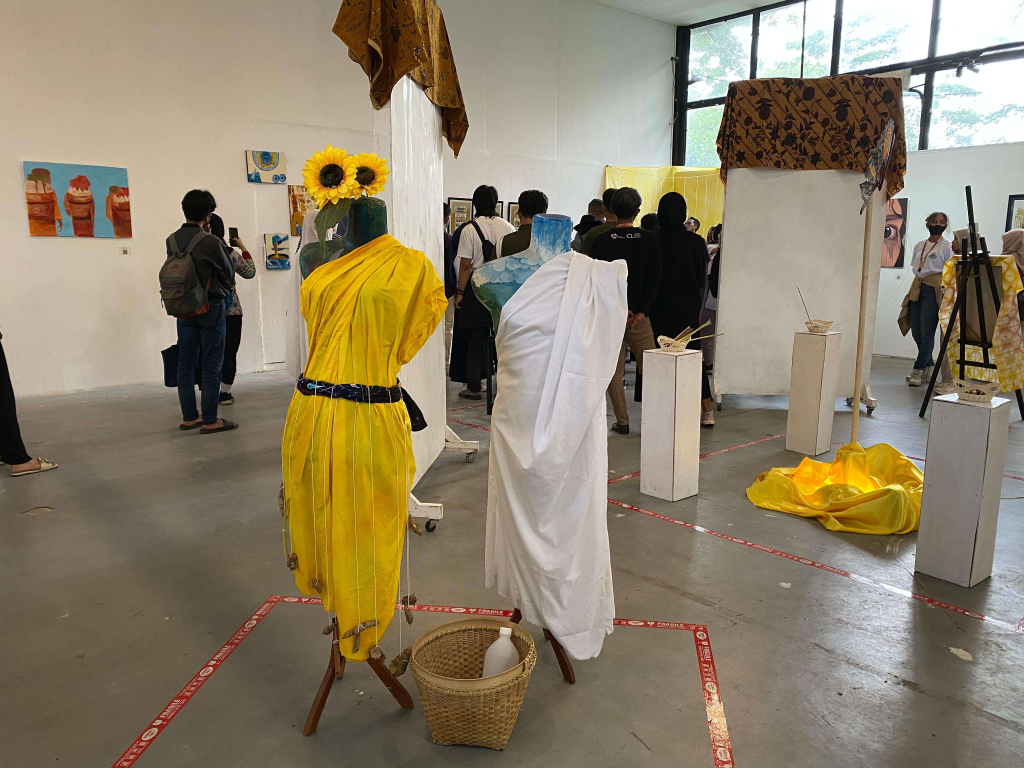
Artworks exhibition at the The Ratan Art Space
Source: Jejamuan Art Project
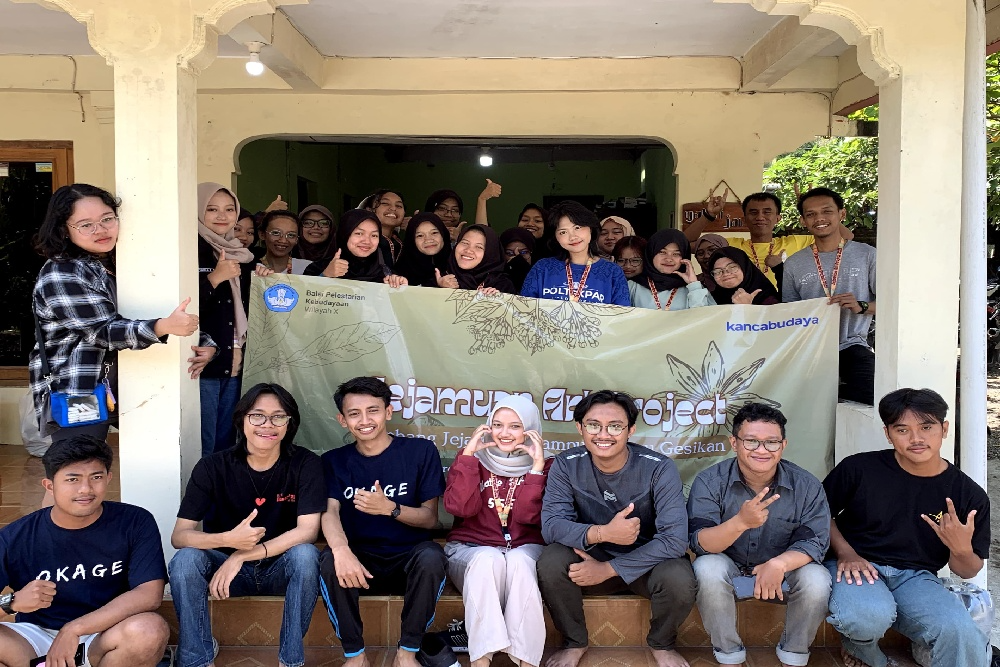
Sambang Jejamuan at Kampung Jamu Gesikan in Merdikorejo, Tempel, Sleman
Source: Harian Jogja
National Cultural Heritage
A Community Service team from UGM’s Faculty of Philosophy spearheaded the creation of the Salareh Nan Jombang Studio in Nagari Koto Gadang, Agam Regency, West Sumatra, designed as an arts and cultural literacy studio utilising digital technology. This initiative emphasises mentoring and information technology training to safeguard and advance national cultural heritage in the face of modernisation.
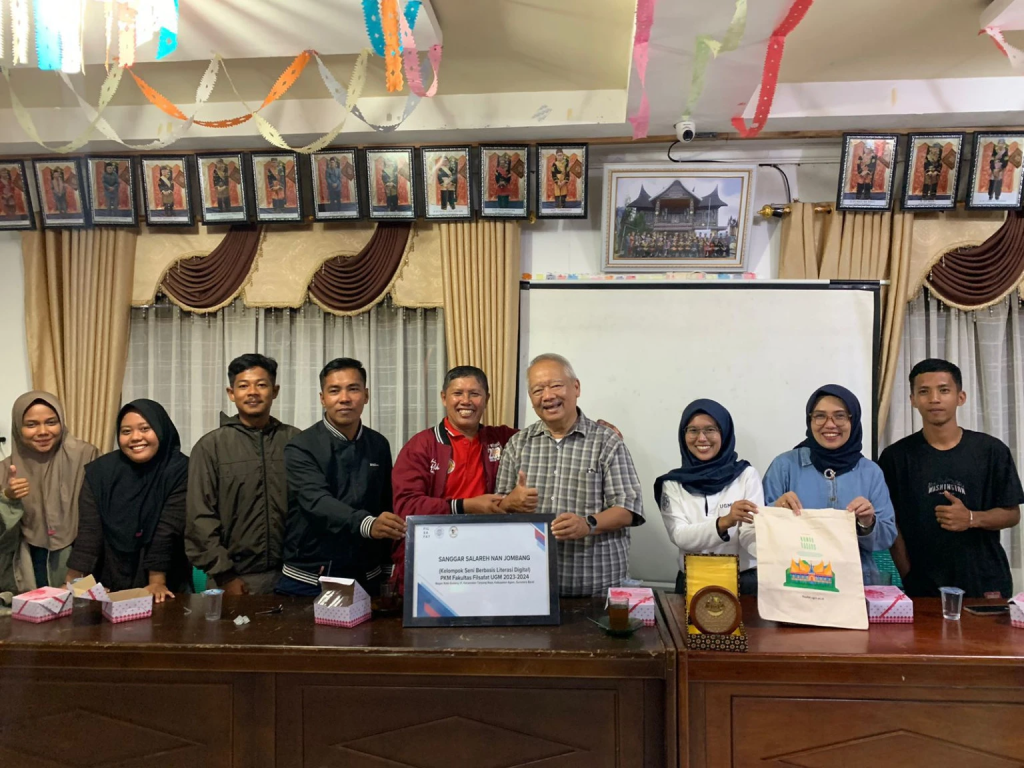
This community service activity is part of a collaborative effort to preserve and promote local cultural heritage. The collaboration involves :
- The Faculty of Philosophy at UGM spearheaded the initiative and launched the Sanggar Salareh Nan Jombang in Nagari Koto Gadang, Agam Regency.
- Local Communities in West Sumatra, which include artists, cultural practitioners, and educators from Nagari Koto Gadang and other areas in West Sumatra, are directly involved in these programs.
- Komunitas Seni Nan Tumpah (KSNT), an independent arts organisation in Padang contributes by providing expertise in traditional and modern performing arts, visual arts, and cultural studies.
- PALITO SUMBAR, a platform that maps literacy communities in West Sumatra, including storytelling groups and mobile libraries, to support the cultural and literacy goals of the project.
National cultural heritage preservation can not only be accomplished through community services about also through organising cultural festivals. The Pesone Sambelia Festival is an annual cultural event held in Sambelia, East Lombok, Indonesia, aimed at preserving and promoting the rich cultural heritage of the Sasak community. The theme of the festival is “Taking Steps Together, Colouring Creativity, Igniting Culture”, emphasising the revitalisation of local traditions and community participation. The event is a collaborative effort involving local government, community groups, and educational institutions, including UGM.
Three main cultural activities were held during the festival:
- Pawai Dulangan: Traditional procession where participants carry dulangan (decorative trays) filled with local produce and offerings, symbolising gratitude and communal harmony.
- Gendang Beleq Performances: Traditional Sasak music featuring large drums, performed during the festival to celebrate and preserve local musical traditions (Kompasiana).
- Cultural Exhibitions: Displays of traditional crafts, culinary arts, and local products, providing visitors with an immersive experience of Sasak culture (NTB POS).
The Pesona Sambelia Festival plays a significant role in sustaining the cultural identity of the Sasak people. It serves as a platform for intergenerational knowledge transfer, economic development through tourism, and the strengthening of community bonds. The festival’s success has garnered attention from cultural preservationists and tourism promoters, highlighting its importance in Indonesia’s cultural landscape.
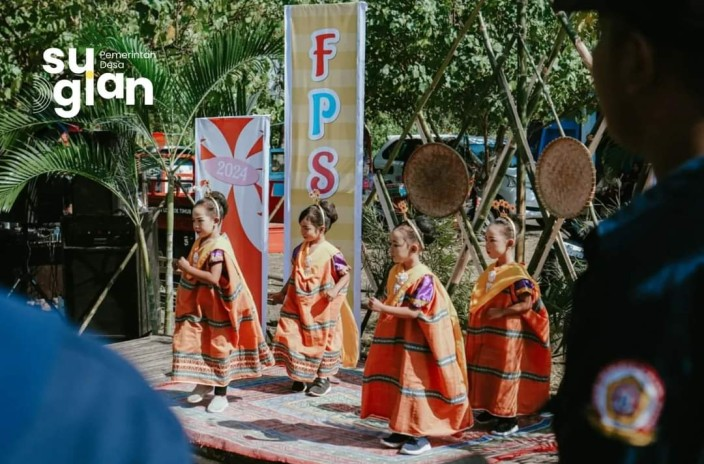
Source: Pesona Sambelia Festival 2024
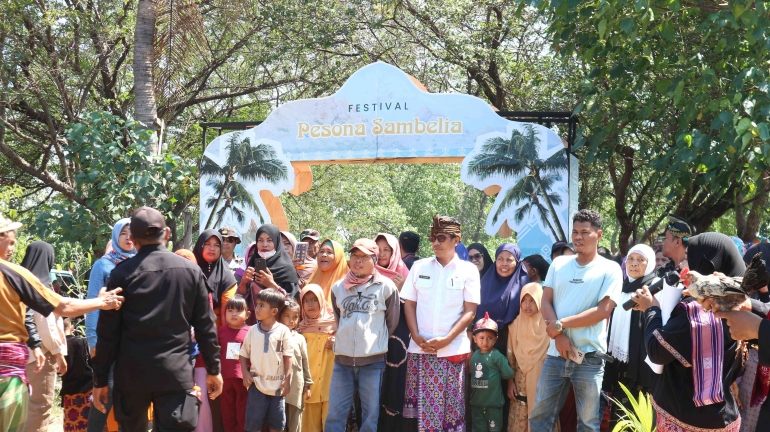
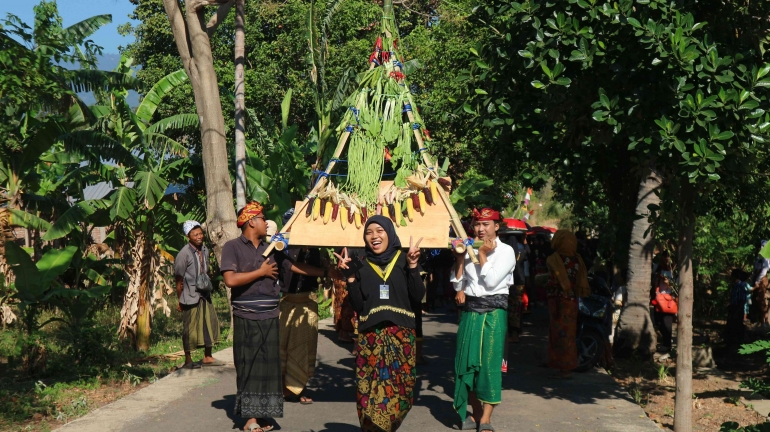
Source: The Pesona Sambelia Festival
Heritage of displaced communities
Universities hold the unique power to bridge the past and present, serving as guardians of cultural memory. Through projects that document and preserve intangible cultural heritage—local folklore, traditions, languages, and ancestral knowledge—they become sanctuaries for histories at risk of being forgotten. In this pursuit, the heritage of displaced communities takes centre stage, offering a poignant testament to resilience and identity.
UGM’s Center for Religious and Cross-cultural Studies has conducted research on the Matua community, a displaced ethnic group originating from East Bengal. The research focuses on how the Matua community maintains their cultural heritage through practices like music and religious rituals CRCS. Meanwhile, in West Java, UGM students conducted a study in Ciptagelar, Sukabumi, focusing on how the Indigenous community leverages technology in Ciptagelar to preserve their culture. This research highlights the community’s efforts to maintain cultural practices amidst modernisation.
Besides conducting field research, UGM also organises national seminars on cultural preservation, such as the “Cultural Heritage in Our Hands” seminar on the vital role of libraries, archives, and museums in supporting the Sustainable Development Goals (SDGs). The seminar addressed the preservation of the cultural heritage of displaced communities through educational resources and fostering community identity (UGM Library).
Through these endeavours, UGM contributes significantly to the preservation of Indonesia’s rich cultural diversity, ensuring that intangible heritage is documented, recognised, and sustained for future generations.
References:
- Dissemination of Sleman Intangible Cultural Heritage 2023
- Jejamuan Art Project
- Harian Jogja
- Salareh Nan Jombang Studio
- National cultural heritage
- Pesona Sambelia Festival 2024
- The Pesona Sambelia Festival
- Forging sacred spaces through sound: the Matua community
- Indigenous community leverages technology in Ciptagelar
- UGM National Seminar Highlights Vital Role of Libraries, Archives, and Museums in Supporting SDGs
